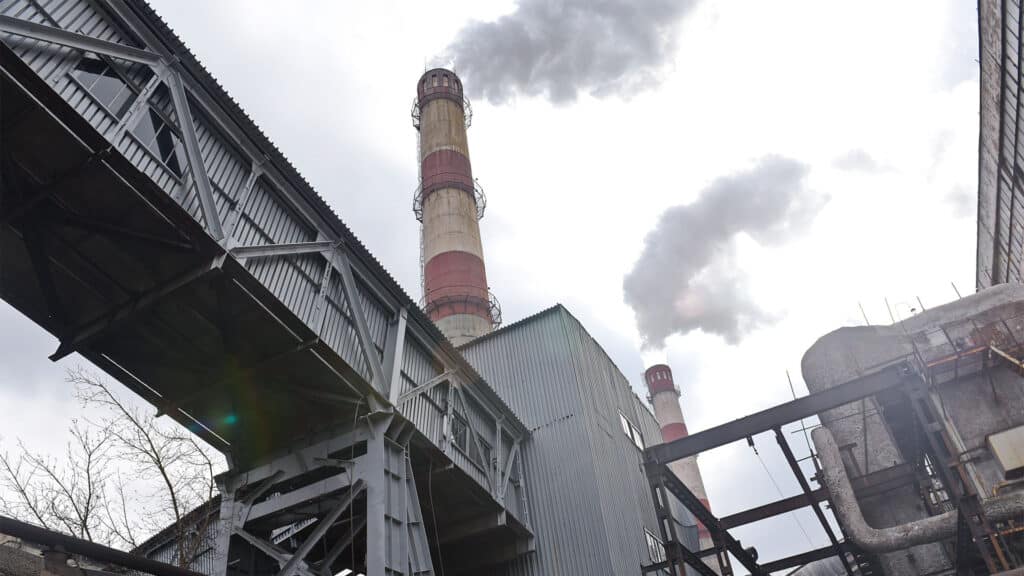ADB to help Kazakhstan close its coal power plants producing 70% of electricity in the country

The Asian Development Bank (ADB) and the Ministry of Energy of Kazakhstan have signed a memorandum of understanding aimed at cutting the country’s CO2 emissions, as reported by the bank.
«The ADB and the Government of Kazakhstan have moved a step closer toward the possible early retirement of a coal plant in Kazakhstan under the bank’s Energy Transition Mechanism (ETM) program. Under a memorandum of understanding (MOU) signed at COP29 by ADB and the Kazakhstan Ministry of Energy, the two sides will work toward a pilot transaction that demonstrates a pathway to significantly reduce the country’s greenhouse gas emissions. This could be through decommissioning or repurposing a pilot coal plant for renewables or other low-carbon energy technologies,» the bank said in a statement.
The memorandum was signed by ADB Director General for Central and West Asia Yevgeniy Zhukov and Energy Minister of Kazakhstan Almasadam Satkaliyev.
Within the framework of the project, both sides agreed to decide which coal power stations, heating plants and boiler facilities chosen during feasibility studies and other analyses, are the most suitable for early decommissioning.
«Keeping 1.5 degrees alive means moving away from fossil fuels and toward clean energy as quickly as possible — and ADB’s ETM program aims to do that in a way that considers each country’s energy and socioeconomic development needs,» said ADB Director General for Central and West Asia Yevgeniy Zhukov. «As Asia and the Pacific’s climate bank, we are committed to helping Kazakhstan decarbonize its economy in a way that is just and inclusive, and we aim to demonstrate how the clean energy transition can be accelerated in Central Asia,» the ADB said.
Under the Paris Agreement, many countries of the world agreed to undertake significant measures to cut carbon emissions causing a green-house effect to hold «the increase in the global average temperature to well below 2°C above pre-industrial levels» (referring to the period from 1850 to 1900 as a benchmark) and pursue efforts «to limit the temperature increase to 1.5°C above pre-industrial levels.»
According to the United Nations, a temperature increase of 1.5 °C above the pre-industrial level was first reported in 2015 and 2016 due to human-made climate change and the warming of the Pacific Ocean surface phenomenon known as «El Niño.» In late 2023 and early 2024, the average global temperature was also above 1.5 °C. The first 12-month period of global temperature being above 1.5 C started on February 2023 and lasted until January 2024, driven by El Niño, when the average global temperature was 1.52 °C higher than in the period between 1850 and 1900.
The ADB issues no loans for projects associated with coal-powered power plants or nuclear power plants, as it focuses on renewable energy sources and gas-powered generation as a transition technology. Satkaliyev believes that the joint projects of the development institution and the ministry can lead to a technological shift.
«Kazakhstan will need to develop a new approach that unites the power, heating, and water sectors into a single technological system, relying on ADB’s support and experience. I hope that this program will demonstrate a technological shift and reliability of new systems through ETM which then can be replicated in other plants and regions,» Minister of Energy of Kazakhstan Almassadam Satkaliyev said.
Under the MOU between ADB and Kazakhstan, the two parties also agreed to analyze the potential impact of early decommissioning or repurposing of a plant on Kazakhstan’s power and heat supply, develop the country’s renewable energy generation capacity, and promote regional energy trade. These will be done through joint analytical work, capacity building, consultations and sharing of best practices.
Kazakhstan is the eighth-biggest consumer of coal as the country possesses about 25 billion tons of proven coal reserves. As of today, almost 70% of all the electricity in the country is generated with the help of coal-powered energy facilities. As a result, thermal and power plants account for more than 80% of the country’s total greenhouse gas emissions, the ABD reported. However, the bank didn’t clarify what Kazakhstan should do with the remaining enormous coal reserves or with the workers currently engaged in open-pit and underground coal production or working at thermal power plants and regional power stations throughout Kazakhstan, which still consume coal for their operations, once all these facilities are closed.
Meanwhile, the government of Kazakhstan is still following its long-term strategy aimed at achieving carbon neutrality by 2060. The country’s authorities want to do so by gradually decreasing the role of fossil fuels and expanding the share of renewable energy sources in the national power balance up to 50%. As of 2024, the rate is just about 6%.

